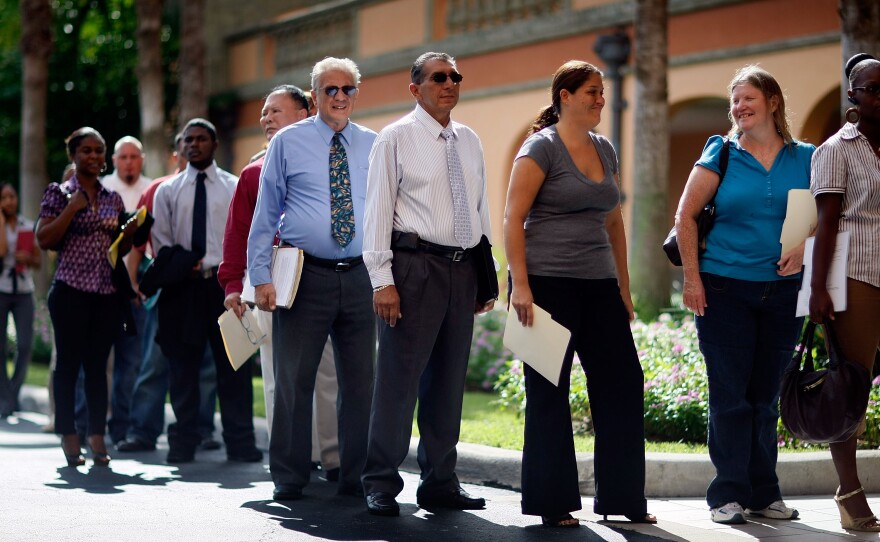The unemployment rate rose to 9.8 percent in September as employers cut far more jobs than expected, evidence that the longest recession since the 1930s is still inflicting widespread pain.
The Labor Department said Friday that the economy lost a net total of 263,000 jobs last month, up from a downwardly revised 201,000 in August. That's above Wall Street economists' expectations of 180,000 job losses, according to a survey by Thomson Reuters.
The unemployment rate rose from 9.7 percent in August, matching expectations.
If laid-off workers who have settled for part-time work or have given up looking for new jobs are included, the unemployment rate rose to 17 percent, the highest on records dating from 1994.
More than a half-million unemployed people gave up looking for work last month. Had they continued searching, the official jobless rate would have been higher.
All told, 15.1 million Americans are now out of work, the department said. And more than 7.1 million jobs have been eliminated since the recession began in December 2007.
Many analysts expect the economy grew at a healthy clip in the July-September quarter, technically ending the recession, but few think the recovery will be strong enough to lower the jobless rate. Most economists expect the rate to top 10 percent and keep climbing.
The economy has received a boost from the Cash for Clunkers auto rebate program and other government stimulus efforts, but many economists believe that growth will slow in the current quarter and early next year as the impact of those programs fade.
Federal Reserve Chairman Ben Bernanke said Thursday that even if the economy were to grow at a 3 percent pace in the coming quarters, it would not be enough to quickly drive down the unemployment rate. Bernanke said the rate is likely to remain above 9 percent through the end of 2010.
Persistently high unemployment could weaken the recovery as consumers, concerned about their jobs and incomes, restrain spending. Consumer spending accounts for about 70 percent of the nation's economy.
Hourly earnings rose by a penny last month, while weekly wages fell $1.54 to $616.11.
The average hourly work week fell back to a record low of 33 in September, the department said. That figure is important because economists are looking for companies to add more hours for current workers before they hire new ones.





